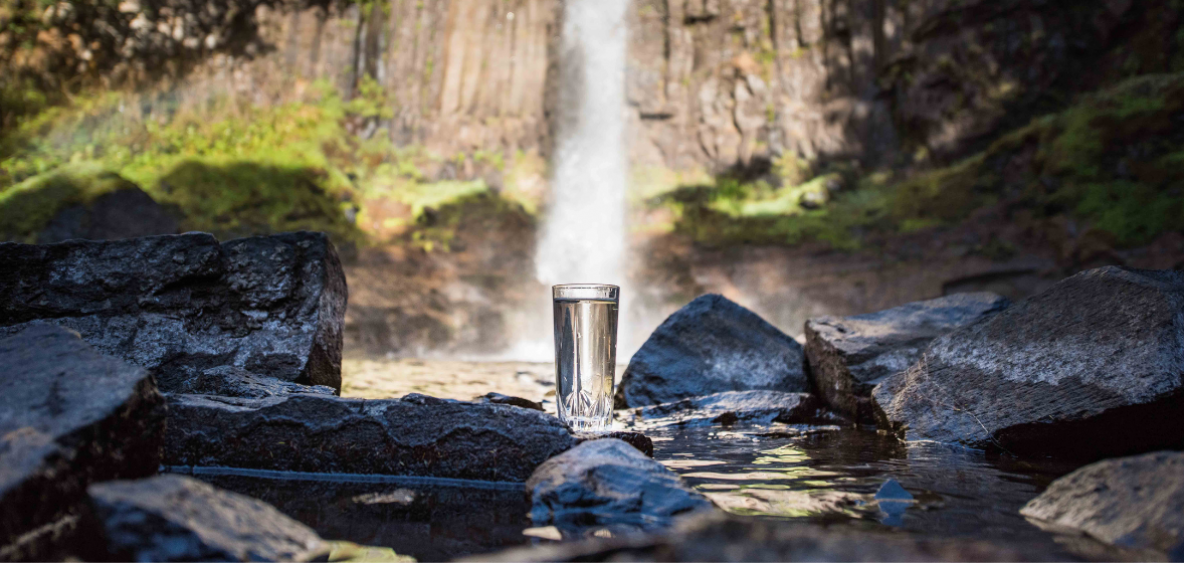 Credit: Roshni Lodhia/TNC
Credit: Roshni Lodhia/TNC The RFS Kenya country project, the Upper Tana Nairobi Water Fund, operates on the principle that addressing water conservation at the source is more effective for maximising the benefits downstream. The improvement of the social, environmental and economic integrity of the Upper Tana watershed in Kenya are clear indicators of this success.
For decades, forests on the steep hillsides in the Upper Tana catchment have been slowly converted to agriculture.
Reduced soil productivity from erosion and competition for space has forced farmers to cultivate on steeper and steeper slopes. During the rainy season, the soil is quickly washed into the rivers reducing the productivity of farmlands and overwhelming water distribution and power generation facilities with sediment.
But these issues don’t remain in the watershed. The Tana River supplies 95% of drinking water to more than 9 million people, including the 4 million people living downstream in the capital city of Nairobi. With an unreliable water supply, many people are forced to buy jerrycans of water just to have enough to drink, cook and wash.
Research has indicated that water security will become more challenging as climate change brings increasingly unpredictable rainfall and the city’s population continues to grow.
-roshni-lodhia-(1).jpg)
Through the Upper
Tana Nairobi Water Fund (UTNWF), the International Fund for Agricultural
Development and The Nature Conservancy (TNC) are bringing diverse partners
together to solve these challenges through a win-win model - the Water Fund.
Water funds are founded on the principle that it’s cheaper to prevent problems at the source than it is to address them further downstream. Urban water users invest in upstream watershed conservation for the benefit of farmers, businesses and Kenyans throughout the region.
In the Upper Tana Watershed, the Nairobi Water Fund, the Sustainable Agriculture Community Development Program (SACDEP), Caritas-Murang’a and the county government are working with more than 44,000 farmers and are on course to reach 50,000 farmers by 2022. This is achieved by providing the skills, training, and resources needed to conserve water, reduce soil runoff and improve crop productivity.
In just the first 5 years, the project helped farmers install more than 15,000 rainwater harvesting pans and more than 596 kilometres of terraces and 988 km of grass strips. Currently, 100,000 acres of land in the catchment are under sustainable land management practices with over 3.6 million trees planted to date, including more than 1.3 million fruit trees. These activities are not only contributing to improved water quality and quantity for downstream water users but are also improving the terrestrial and aquatic biodiversity of the watershed.
Jane Kabugi, for instance, has learned how to dig trenches
and plant Napier grass to prevent soil erosion on her steep hillside farm.
Stanley Kaminju has installed a water pan to store water for irrigation. Now he
can grow and sell vegetables in the dry season when he can fetch a higher price.
“We can say now we are food secure using the water pans given to us by TNC. We are very grateful that we are very stable farmers now and our lives have been transformed”, said Stanley.
The UTNWF is affected by NGOs, public utilities, companies, and private investors coming together and committing to make watershed conservation a priority. They include the national and county governments, GEF, IFAD, Caterpillar Foundation, CocaCola Foundation, EABL, Pentair, CIAT, FRIGOKEN, KenGen, WRA, and the local communities.
Their investments and land management are expected to provide 2 dollars in benefits for every dollar invested over 30 years.
The Coca-Cola company offers products of which more than 98% of the raw materials used are water. The company donated USD 150,000 to TNC towards source water protection not only for industrial use but also for domestic use by the company’s product consumers who live in the watershed.
While the Nairobi Water Fund is the first of its kind in Africa, it builds on the expertise TNC’s scientists have gained from designing more than 30 water funds around the world.
The UTNWF serves as a model to leaders across the continent as they look for a solution to growing challenges such as water scarcity, population growth and climate change.
“What excites me most about this Water Fund and working with TNC is the fact that the impact can be very great. When you look at Nairobi water supply today and find out there is a shortfall of about 30%, and if we can just be able to increase that by the work that we are doing to reduce that deficit by even 5%, the impact is huge.” - Eddie Njoroge, President of Nairobi Water Fund and the International Organization for Standardization (ISO).
By investing and working to conserve and protect our sources
of water, we can make a lasting difference for people, culture and biodiversity
in Kenya and across Africa.
This article was written by John Gathagu, Monitoring & Evaluation Officer, Upper Tana Nairobi Water Fund Trust. Please get in touch for more information.
Subscribe to our monthly newsletter to receive updates on stories directly from the field across all our projects, upcoming events, new resources, and more.